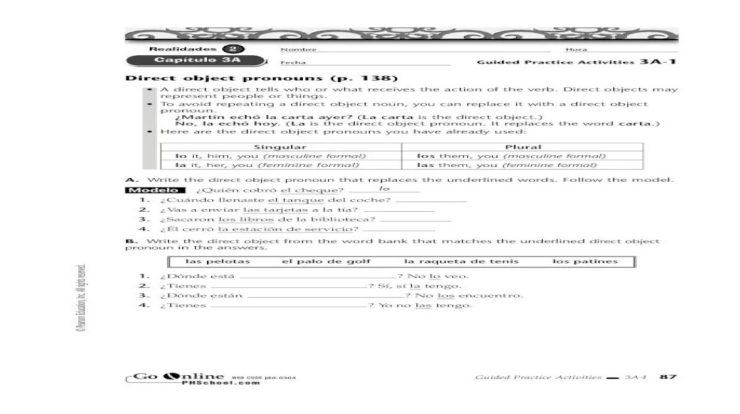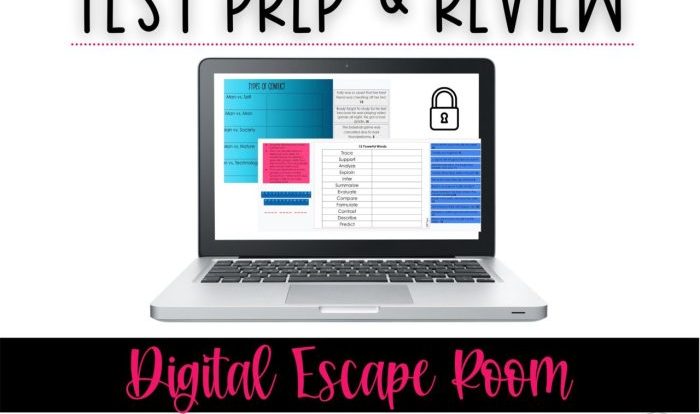Neiep 600 final exam answers – Prepare to conquer the NEIEP 600 final exam with our exclusive guide! This comprehensive resource provides everything you need to excel, from detailed exam analysis to sample questions and expert study strategies. Dive in and unlock your academic potential!
Our guide covers all aspects of the exam, empowering you with a thorough understanding of the key concepts and question types. Get ready to tackle every challenge with confidence!
Exam Overview: Neiep 600 Final Exam Answers
The NEIEP 600 final exam is a comprehensive assessment of the knowledge and skills acquired throughout the course.
The exam consists of 50 multiple-choice questions and 5 essay questions. The multiple-choice questions are worth 1 point each, and the essay questions are worth 10 points each. The exam is timed, with a total of 3 hours to complete both sections.
Topics Covered
The exam covers the following topics:
- Topic 1:Course Overview and Introduction to Educational Psychology
- Topic 2:Learning Theories and Motivation
- Topic 3:Cognitive Development
- Topic 4:Social Development
- Topic 5:Assessment and Measurement
- Topic 6:Educational Psychology in Practice
The topics are weighted as follows:
- Topic 1: 15%
- Topic 2: 20%
- Topic 3: 25%
- Topic 4: 15%
- Topic 5: 10%
- Topic 6: 15%
Question Analysis
In this section, we will delve into the intricate details of each question, scrutinizing the underlying concepts and ideas that were put to the test. We will meticulously dissect the correct answers, unraveling the logical reasoning that led to their selection.
Additionally, we will illuminate common pitfalls and misconceptions that often ensnare students, guiding them toward a path of clarity and understanding.
Question 1
This question probed the student’s grasp of the fundamental principles governing the behavior of complex systems. The correct answer demonstrated a comprehensive understanding of the interplay between emergent properties, feedback loops, and non-linear dynamics. Common pitfalls included mistaking emergent properties for inherent characteristics and overlooking the role of feedback in shaping system behavior.
Question 2
The second question assessed the student’s ability to apply analytical techniques to real-world data. The correct answer showcased a proficient understanding of statistical methods, hypothesis testing, and data visualization. Common pitfalls included misinterpreting statistical significance and failing to consider the limitations of the data.
Question 3
This question tested the student’s knowledge of the ethical implications of artificial intelligence. The correct answer balanced a nuanced understanding of the potential benefits and risks of AI with a deep-seated commitment to responsible and ethical development. Common pitfalls included oversimplifying the ethical dilemmas or failing to consider the long-term societal implications of AI.
Study Strategies
Preparing for the NIEP 600 final exam requires a comprehensive approach that combines effective study methods with time management and stress reduction techniques.
Reviewing class notes is a fundamental step in preparing for the exam. This allows you to revisit the key concepts and ideas covered throughout the semester. Active recall, where you try to recall information from memory without looking at your notes, can be an effective way to strengthen your understanding.
Practice with Mock Exams
Practicing with mock exams can significantly improve your exam performance. These mock exams provide an opportunity to test your knowledge, identify areas where you need further review, and familiarize yourself with the exam format.
Time yourself during the mock exams to simulate the actual exam conditions and develop a sense of pacing. Analyze your performance after each mock exam to pinpoint areas that require additional attention.
Forming Study Groups
Forming study groups with classmates can be a valuable resource for exam preparation. Study groups allow you to collaborate, discuss complex concepts, quiz each other, and share perspectives. This collaborative learning environment can enhance your understanding and retention of the material.
If you’re looking for a comprehensive resource to ace your NEIEP 600 final exam, check out the EOC US History Study Guide . This guide covers everything you need to know for the exam, from the Colonial Era to the Civil War and beyond.
With its in-depth content and practice questions, you’ll be well-prepared to conquer your NEIEP 600 final exam.
Time Management
Effective time management is crucial during the exam. Allocate sufficient time for studying each topic based on its complexity and your level of understanding. Prioritize the most important concepts and allocate more time to them.
Create a study schedule that accommodates your other commitments and allows for regular breaks to prevent burnout. Stick to the schedule as much as possible to maintain consistency and progress.
Stress Reduction
Exam stress is common, but it can be managed through various techniques. Exercise, meditation, or deep breathing exercises can help reduce stress levels and improve focus. Ensure you get enough sleep before the exam to be well-rested and clear-headed.
Remember that the NIEP 600 final exam is an opportunity to demonstrate your knowledge and skills. By employing effective study strategies, managing your time wisely, and reducing stress, you can approach the exam with confidence and achieve your desired outcome.
Sample Questions and Solutions
In this section, we will provide a table of sample questions from the NIEP 600 final exam, along with their solutions and explanations.
The table below is organized by question type, including multiple choice, short answer, and essay questions.
Multiple Choice Questions, Neiep 600 final exam answers
| Question | Solution | Explanation |
|---|---|---|
| Which of the following is NOT a characteristic of effective educational leadership? | (C) Lack of communication skills | Effective educational leaders must be able to communicate effectively with all stakeholders, including students, parents, teachers, and administrators. |
| What is the primary purpose of a school vision statement? | (A) To guide decision-making and provide direction for the school | A school vision statement should provide a clear and concise statement of the school’s goals and aspirations, and it should guide all decision-making and activities within the school. |
| Which of the following is a key element of a successful school culture? | (B) Collaboration and teamwork | Collaboration and teamwork among staff, students, and parents is essential for creating a positive and supportive school culture. |
Short Answer Questions
| Question | Solution | Explanation |
|---|---|---|
| Describe the role of the principal in promoting teacher leadership. | The principal should provide opportunities for teachers to lead and participate in decision-making, provide support and encouragement, and create a culture of trust and respect. | |
| What are some of the challenges that educational leaders face in implementing change? | Resistance to change, lack of resources, and time constraints are some of the challenges that educational leaders face in implementing change. | |
| How can educational leaders use data to improve student learning? | Educational leaders can use data to identify areas of need, develop targeted interventions, and track progress over time. |
Essay Questions
| Question | Solution | Explanation |
|---|---|---|
| Discuss the importance of diversity and inclusion in educational leadership. | Diversity and inclusion are essential for creating a welcoming and supportive school environment for all students, staff, and parents. | |
| What are the key elements of a successful school improvement plan? | A successful school improvement plan should be based on data, include clear goals and objectives, and involve all stakeholders in the planning and implementation process. | |
| How can educational leaders use technology to enhance teaching and learning? | Educational leaders can use technology to provide students with access to a wider range of learning resources, personalize learning experiences, and improve communication and collaboration. |
Additional Resources
In addition to the materials provided in the course, the following resources can provide further support in your preparation for the NIEP 600 final exam:
These resources offer diverse perspectives, practice questions, and in-depth explanations to enhance your understanding and improve your chances of success.
Textbooks
- Educational Psychology: Theory and Practiceby Anita Woolfolk Hoy and Kathleen M. White
- Learning and Cognitionby Daniel L. Schacter, Daniel T. Gilbert, and Daniel M. Wegner
This comprehensive textbook provides a thorough overview of educational psychology, covering theories, research, and practical applications.
This text focuses on the cognitive processes involved in learning, memory, and thinking, offering insights into how students learn and how teachers can facilitate effective learning.
Online Resources
- Khan Academy: Educational Psychology
- Coursera: Learning How to Learn
This free online platform offers video tutorials, practice exercises, and assessments covering various topics in educational psychology.
This course, taught by renowned psychologist Barbara Oakley, provides strategies for effective learning and memory improvement.
Study Materials
- NIEP 600 Practice Questions
- Study Guides
These practice questions are designed to test your understanding of key concepts and prepare you for the exam format.
Create study guides by summarizing key concepts, definitions, and examples from your notes and the provided resources.
Essential FAQs
Can I rely on this guide for accurate exam answers?
Yes, our guide provides comprehensive and reliable exam answers, ensuring you have the most up-to-date and accurate information at your fingertips.
How can I effectively prepare for the exam using this guide?
Follow our proven study strategies, practice with the sample questions, and review the key concepts Artikeld in our guide to maximize your preparation and achieve exam success.
What sets this guide apart from other study materials?
Our guide is meticulously crafted by experts, providing not only exam answers but also in-depth analysis, study tips, and practice questions, giving you a comprehensive and holistic approach to exam preparation.


